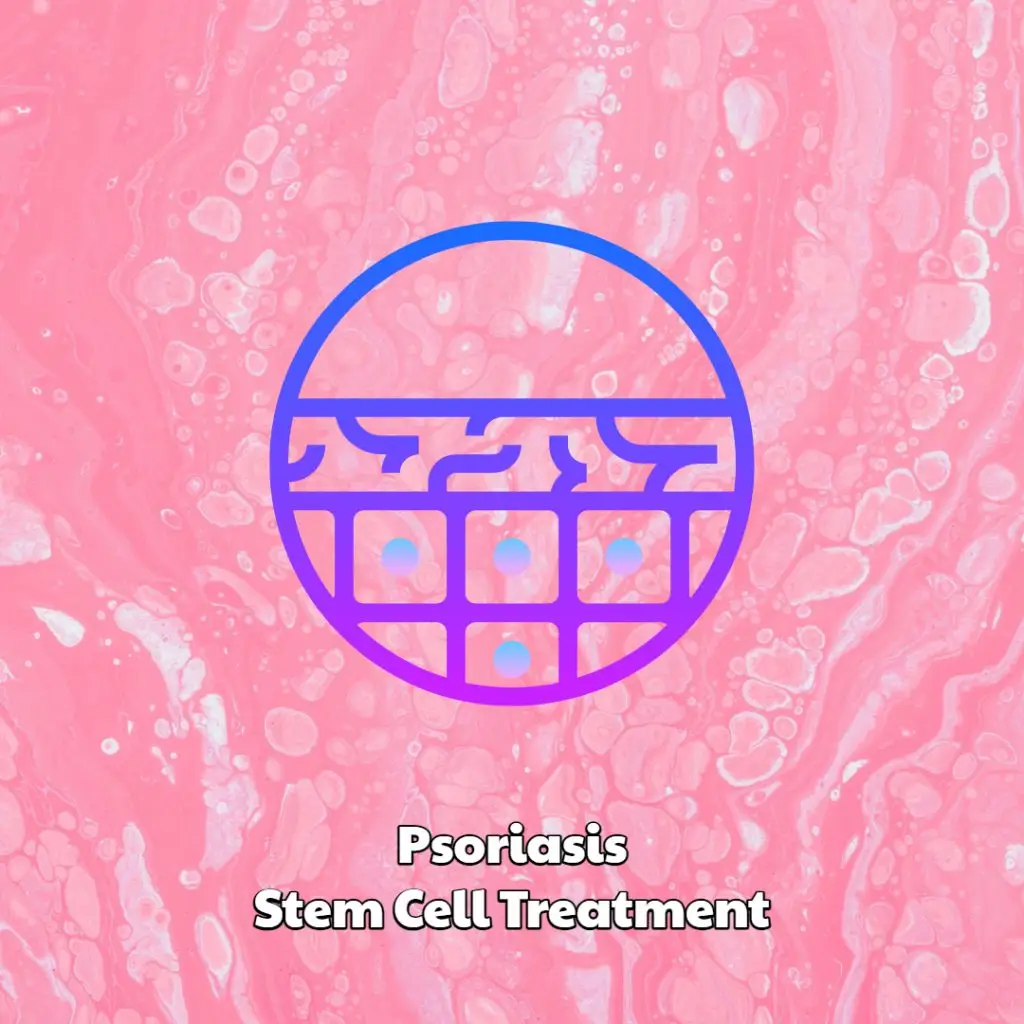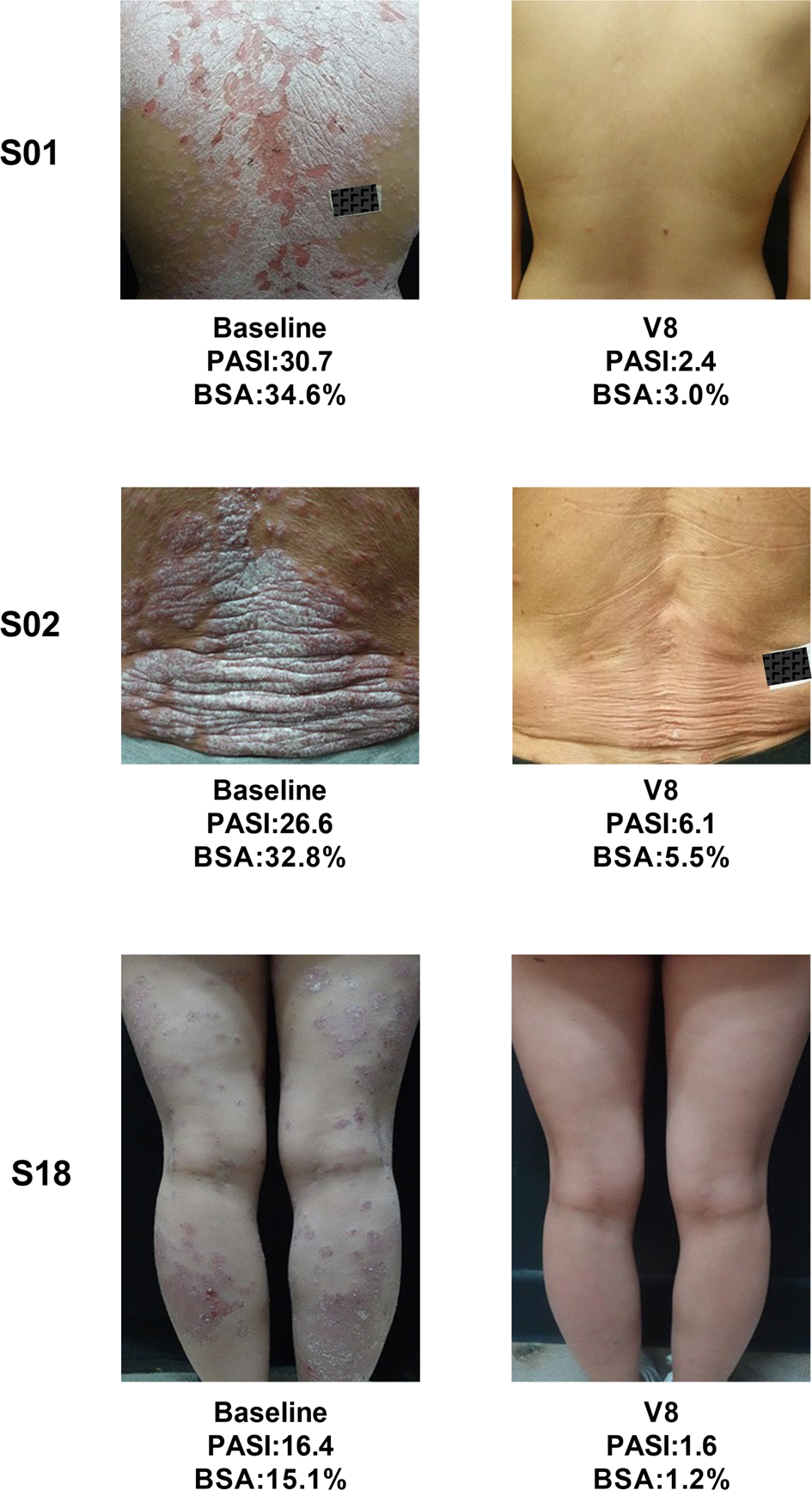
The Psoriasis Stem Cell Treatment Consists of the Following:
300 Million Stem Cell IV
NAD+ and High Dose Vitamin C IV drip after the stem cell IV
PRICE: $10,890 USD
- Day 1: Arrive and Rest
- Day 2: Bloodwork and Payment
- Day 3: Treatment – Takes about 2.5 hours
- Day 4: Fly Home
The Psoriasis Stem Cell Treatment at Dream Body Clinic
Are you or a loved one suffering from psoriasis, an autoimmune disease that causes inflammation and tissue damage throughout the body? Then it’s time to consider stem cell therapy as an effective treatment option.
At Dream Body Clinic, we offer cutting-edge Psoriasis Stem Cell Treatment that uses Mesenchymal Stem Cells (MSCs) to modulate the immune system and promote tissue regeneration. MSCs have been shown to have a beneficial effect on the immune system, reducing inflammation and autoimmune reactions, and promoting the growth and differentiation of tissue-specific cells.
Our stem cell therapy is administered by highly skilled medical professionals in a sterile, state-of-the-art facility, using minimally invasive techniques that prioritize your safety and comfort.
Our Psoriasis Stem Cell Treatment includes stem cell infusions and other supportive therapies designed to optimize outcomes. Our team of experienced professionals will customize your treatment plan according to your unique case and medical history.
Our Psoriasis Stem Cell Treatment has been shown to reduce symptoms, improve quality of life, and enhance overall health and well-being in psoriasis patients. Many of our patients have reported significant improvements in symptoms, including reduced inflammation and pain, improved skin, decreased fatigue, and enhanced cognitive function.
Don’t let Psoriasis hold you back from living your best life. Contact us today to learn more about our Psoriasis Stem Cell Treatment and how it can help you regain your health and vitality. At Dreambody Clinic, our goal is to help you accomplish all of your health and wellness goals and get back to doing what you love!
Call (307) 461-5393 For a Free Consultation
You can also email us at info@dreambodyclinic.net

How does the Psoriasis Stem Cell Treatment Work?
Mesenchymal stem cells (MSCs) work wonders in the treatment of psoriasis due to their ability to modulate the immune response and promote tissue repair.
In psoriasis, there is an abnormal immune response, where immune cells mistakenly attack the skin, leading to inflammation and excessive skin cell production. MSCs have immunomodulatory properties, meaning they can help regulate the immune system.
When administered to a person with psoriasis, MSCs can inhibit the activation of certain immune cells that contribute to the inflammatory response. They can also promote the production of anti-inflammatory molecules, such as cytokines and growth factors, which can help reduce inflammation in the affected skin.
Moreover, MSCs can interact with other cells in the skin, such as keratinocytes, which are the main cell type involved in psoriasis. They can promote the differentiation of these cells and help restore the normal function of the skin. MSCs also have the ability to inhibit the proliferation of abnormal skin cells, thereby reducing the excessive production of skin cells seen in psoriasis.
Furthermore, MSCs have been shown to have a paracrine effect, which means they can release various factors that can have a beneficial effect on the surrounding tissues. These factors can help regulate the immune response, promote tissue repair, and reduce inflammation.
Overall, the mechanisms by which MSCs work to treat psoriasis involve their immunomodulatory properties, their ability to promote tissue repair, and their paracrine effects.
How do Mesenchymal Stem Cells Benefit T Cells for Psoriasis Treatment?
Mesenchymal stem cells (MSCs) have been found to benefit T cells in the treatment of psoriasis. T cells play a crucial role in initiating and perpetuating the immune response in psoriasis, leading to inflammation and skin cell overproduction.
When MSCs are introduced, they interact with T cells in several ways to regulate their function and reduce inflammation:
Modulation of T cell activation: MSCs can inhibit the activation of T cells in response to the inflammatory signals involved in psoriasis. By suppressing the activation of T cells, MSCs help to dampen the immune response and reduce inflammation.
Induction of T cell apoptosis: MSCs can induce programmed cell death, known as apoptosis, in activated T cells. This process helps to eliminate the overactive T cells that contribute to the inflammatory response in psoriasis.
Balance of T cell subsets: MSCs can promote the shift of T cells from pro-inflammatory subsets, such as Th17 cells, to anti-inflammatory subsets, such as regulatory T cells (Tregs). Th17 cells are known to play a role in psoriasis pathogenesis, while Tregs have immunosuppressive properties and can help control inflammation.
Modulation of T cell cytokine production: MSCs can regulate the production of cytokines by T cells. Cytokines are chemical messengers that play a crucial role in immune responses. MSCs have been shown to decrease the production of pro-inflammatory cytokines, such as interleukin-17 (IL-17), while increasing the production of anti-inflammatory cytokines, such as interleukin-10 (IL-10).
By exerting these effects on T cells, MSCs help to restore the balance of the immune system and reduce the excessive inflammation observed in psoriasis. In addition to T cell modulation, MSCs also interact with other immune cells and promote tissue repair, contributing further to the therapeutic benefits in psoriasis treatment.
How do MSCs Affect Keratinocytes in Psoriasis?
Mesenchymal stem cells (MSCs) can also affect keratinocytes in psoriasis treatment. Keratinocytes are the major cell type found in the skin and play a crucial role in the development of psoriatic lesions.
When MSCs are introduced, they interact with keratinocytes in several ways:
Differentiation regulation: MSCs can modulate the differentiation of keratinocytes. In psoriasis, keratinocyte differentiation is often disrupted, leading to the excessive production of skin cells and thickening of the skin. MSCs have been shown to promote the normal differentiation of keratinocytes, helping to restore the balance and function of the skin.
Inhibition of abnormal proliferation: MSCs can inhibit the excessive proliferation of keratinocytes observed in psoriasis. By regulating cell cycle progression and growth factor production, MSCs help to control the abnormal growth of keratinocytes, contributing to a reduction in psoriatic lesions.
Promotion of tissue repair: MSCs have the ability to secrete a variety of growth factors, cytokines, and extracellular matrix components, which promote tissue repair and regeneration. These factors can stimulate the migration, proliferation, and wound-healing properties of keratinocytes, aiding in the restoration of healthy skin.
Anti-inflammatory effects: MSCs have immunomodulatory properties and can help regulate the inflammatory response in the skin. By reducing inflammation, MSCs indirectly impact keratinocytes, as inflammation is a key driver of abnormal keratinocyte function in psoriasis.
Overall, the effects of MSCs on keratinocytes involve regulating differentiation, inhibiting abnormal proliferation, promoting tissue repair, and modulating inflammation. These interactions contribute to the beneficial effects of MSCs in psoriasis treatment.
How do Mesenchymal Stem Cells Benefit B Cells for Psoriasis Treatment?
Mesenchymal stem cells (MSCs) have the ability to benefit B cells in the treatment of psoriasis, an autoimmune disease characterized by an overactive immune system. Here are some of the ways that MSCs may benefit B cells in psoriasis treatment:
Inhibition of B cell proliferation: MSCs can inhibit the proliferation of B cells, which are responsible for producing autoantibodies that attack healthy tissue in psoriasis patients. By reducing the proliferation of B cells, MSCs can help to reduce autoimmune reactions and protect healthy tissue.
Suppression of antibody production: In addition to inhibiting B cell proliferation, MSCs can also suppress the production of autoantibodies that contribute to tissue damage in psoriasis. This may be due to the ability of MSCs to reduce the activation of B cells and their differentiation into plasma cells.
Induction of B cell apoptosis: MSCs can induce the apoptotic death of B cells, which can help to reduce the production of autoantibodies and prevent tissue damage in psoriasis patients.
Modulation of cytokine production: In psoriasis, B cells can produce cytokines that contribute to tissue damage and inflammation. MSCs can modulate cytokine production by B cells, reducing the production of inflammatory cytokines such as interleukin-6 (IL-6).
Overall, the ability of MSCs to modulate B cell activity and reduce autoimmune reactions makes them a great therapy for psoriasis.
How do Mesenchymal Stem Cells Benefit Tissue Regeneration for Psoriasis Treatment?
Mesenchymal stem cells (MSCs) have been shown to benefit tissue regeneration in the treatment of psoriasis, an autoimmune disease characterized by an overactive immune system that can lead to inflammation and tissue damage. Here are some of the ways that MSCs may benefit tissue regeneration in Psoriasis treatment:
Promotion of tissue repair: MSCs can promote tissue repair by secreting growth factors and cytokines that stimulate the growth and differentiation of tissue-specific cells. This can be particularly important in the case of psoriasis, where damage to various organs and tissues can occur.
Modulation of the immune system: MSCs can modulate the immune system by suppressing inflammation and reducing autoimmune reactions. This can help to reduce tissue damage and create a more favorable environment for tissue regeneration.
Promotion of angiogenesis: Angiogenesis refers to the process of new blood vessel formation, which is critical for tissue regeneration. MSCs can promote angiogenesis by secreting factors that stimulate the growth of blood vessels and improve blood flow to damaged tissues.
Guidance of tissue-specific cells: MSCs have the ability to guide tissue-specific cells, such as chondrocytes, osteocytes, and adipocytes. This can be particularly useful in cases where tissue damage or loss has occurred.
Overall, the ability of MSCs to promote tissue repair and regeneration, as well as modulate the immune system, makes them a wonderful therapy for psoriasis.
Psoriasis Stem Cell Treatment Studies
Mesenchymal stem cells for the treatment of psoriasis: a comprehensive review
Role of mesenchymal stem cells in the pathogenesis of psoriasis: current perspectives
Human umbilical cord mesenchymal stem cells for psoriasis: A phase 1/2a, single-arm study

Representative skin images of 3 patients before and after treatment
From: Human umbilical cord mesenchymal stem cells for psoriasis: a phase 1/2a, single-arm study
Side Effects or Risk
The only side effects that have been documented are the following:
- 1 in 100 people will experience a slight fever and/or headache for a few hours after treatment or the next day. We have found that 500mg of Tylenol easily resolves this issue.
- Any treatment involving an injection such as an IV runs a risk of infection. We have never had a patient experience an infection due to our sterility protocols,.
- A very small percentage of patients for this treatment will be non-responders. As with any medication or treatment there is always a chance of no change. Tylenol does not always fix a headache as an example.
- We do not treat patients that have had cancer within the past 5 years. There is still no conclusive evidence linking stem cells to make cancer worse, but we prefer to stay on the side of safety until more information is available.
Our lab has over 8 years of experience cultivating mesenchymal stem cells with perfect safety and efficacy. See Stem Cell Certification by Clicking Here
How long do the Psoriasis Stem Cell Treatment Results Last?
The results from the the Psoriasis stem cell treatment can last for years or even indefinitely. This is because the stem cells are reprogramming your immune system to work the way it was designed to work. Once the immune cells are reprogrammed and any damage is repaired throughout the body then things will work the way they should. This will last because it is real regeneration and not just a pill to cover up symptoms.
The mesenchymal stem cells that are administered via IV will stay in the system for 8 months to a year. During that time they will interact with immune cells and seek out inflammation where they will guide cellular regeneration. After 8 to 12 months any MSCs that are free bound in your system will differentiate into an osteoblast (bone cell), adipocyte (fat cell) or chondrocyte (cartilage cell). They will then contain the donors HLA markers and your immune system will destroy and remove them. This is an easy process for your immune system and there is no negative reaction in your body from it. Some of the MSCs that were free bound from the IV will find capillaries to call home. They will attach and be considered a pericyte. When they do this they can live in your system indefinitely in a beneficial way to your system.
The Psoriasis Stem Cell Treatment is allowing your body to heal like it did when you were a little kid. There are a lot of other benefits outside of just fixing your Psoriasis symptoms such as anti-aging. Click Here for An in depth look at how the stem cell IV works for Anti-Aging
How to get the Psoriasis Stem Cell Treatment
In conclusion, the Psoriasis stem cell treatment could be a promising solution for individuals who are facing this condition. The Dream Body Clinic provides personalized treatment plans using stem cells to repair and regenerate damage to the whole body which may lead to improved mobility and relief of symptoms. While this treatment is not yet widely available, ongoing research suggests that it is a viable alternative to traditional psoriasis management methods. If you are interested in learning more about this treatment, we recommend calling us for a free consultation at (833) 445-9089. If you are ready to get the Psoriasis Cell Treatment then click the image below for details on how to book.
